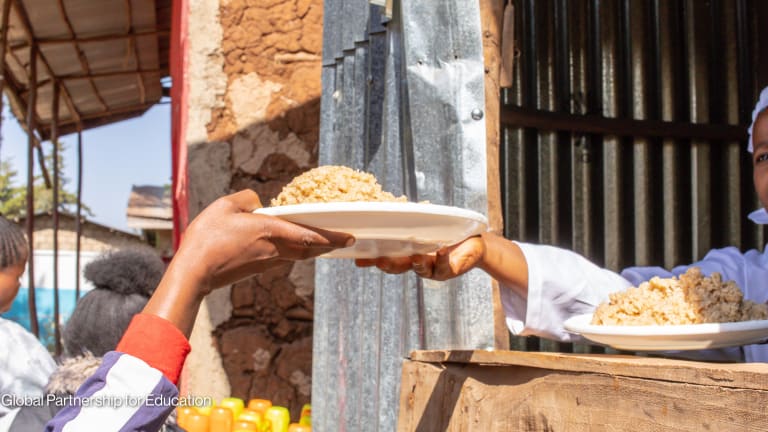
Joseph Zulu never uses the term “climate-smart agriculture,” even as he proudly points out the fertilizer trees he planted between rows of crops on his field in Zambia’s eastern province. But whether he uses the term or not, Zulu is a wonderful example of how climate-smart agriculture can be incorporated into traditional farming environments.
Fertilizer trees, such as the Faidherbia albida or msangu as it is known locally, with their ability to increase agricultural productivity and improve crop resilience through enhanced soil fertility and protection, have been described as a miracle tree. Zambia could use such miracles.
Sustainably increasing food production is one of the biggest challenges facing Zambia, where farming supports the livelihood of over 70 percent of the population, including 78 percent of women. Relative to other countries in the region, it has an abundance of fertile land, water, and a favorable climate for agricultural production. Yet, despite these favorable conditions, crop yields are well below global averages and 80 percent of rural Zambians live in extreme poverty.
The riddle of the missing trees
Even with the important benefits derived from msangu, few local farmers follow Zulu’s lead. Agroforestry tree species are planted on only 6 percent of fields in his district, despite widespread adoption in places like Niger and Burkina Faso. And simple agroforesty techniques — like those practiced by Zulu — have been shown to boost crop yields, providing additional food and income, without contributing to climate change. So why aren’t more Zambian farmers planting fertilizer trees?
One reason might be property rights. The vast majority of rural Zambians live on customary land without formally recognized boundaries to their fields or official documentation of their rights to access, use or own land. When farmers’ property rights are insecure, they may be less likely to plant and sustain trees, conserve resources or make long term improvements to the soil. This may help explain why, in a recent survey, 91 percent of Zambia’s rural population stated a desire to acquire some form of paper documentation for their land.
To meet this demand, the U.S. Agency for International Development is working with four chiefs and a local NGO to clarify, map and certify customary land rights in 150 villages in eastern Zambia. The program is using low-cost, open source mobile technology on readily available GPS-enabled tablets to map boundaries and record people’s rights and claims to the land. This technological solution is paired with a human one: community participation. Farmers and their neighbors walk the boundaries of their fields together, recording the borders only once all parties agree. The resulting maps are shared with and validated by the wider community and traditional leaders before land certificates are issued. The result is a powerful piece of paper — a certificate that provides greater security and clarity over rights and responsibilities related to land.
Putting theory to the test
The strengthened property rights that result from this process should lead to fewer disputes and greater incentives to invest in and conserve land and resources (by planting more msangu trees, for example). But USAID is not taking this assumption for granted. To rigorously test this hypothesis, the program is conducting a randomized control trial — the gold standard of rigorous, scientific impact evaluations — to measure the effectiveness of the land certification activities.
The results of this evaluation will help answer the question: “How do stronger property rights affect a farmer’s decision to practice climate-smart agriculture, including agroforestry?”
For the government of Zambia, the initial research on this question, along with the methods and lessons from USAID’s program, is already helping to directly inform national-level multistakeholder dialogues on land policy reform. For the global community — and for the millions of people in the developing world living without secure rights to land and resources — the answer to this question could be an important part of shaping efforts to end extreme poverty, reduce hunger and address a rapidly changing climate.
Planet Worth is a global conversation in partnership with Abt Associates, Chemonics, HELVETAS, Tetra Tech, the U.N. Development Program and Zurich, exploring leading solutions in the fight against climate change, while highlighting the champions of climate adaptation amid emerging global challenges. Visit the campaign site and join the conversation using #PlanetWorth.




